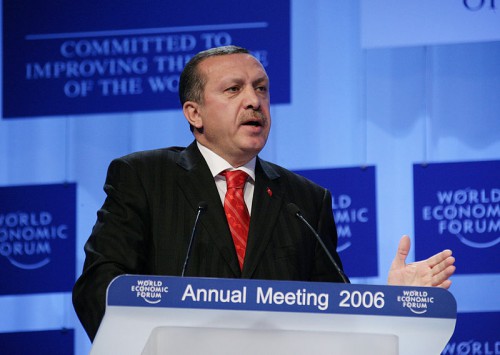Turkey’s road to European Union membership has been a rocky one, and is still incomplete. Talks that had been stalled for three years were set to re-open in June, but were postponed due to the Turkish government’s brutal crackdown on anti-government protestors.
Turkey has been an associate member of the EU since 1963, when it was known as the European Economic Community. Due to geopolitical disagreements and human rights concerns, however, Turkey has never gained the full membership it has been vying for.
For decades, the leaders of the EU were able to hold strong on their position. Turkey’s suppression of religious minorities and dissidents, mistreatment of Western journalists, and their occupation of a divided Cyprus violated clear precedents for EU membership. However, as both the EU and Turkey have embarked on interesting economic journeys, the tables seem to be turning in Turkey’s favor.
As the EU’s economy has worsened, Turkey’s has improved. This has made the leaders of Europe more open to negotiations regarding Turkey’s status in the EU. At this point, the people of the EU and Turkey must ask themselves some important questions.

(Photo courtesy of Wikimedia Commons)
Are the people of Europe willing to sacrifice some of their values concerning democracy and human rights in order to make the EU an economically stronger entity? Are the people of Turkey willing to risk their recent economic prosperity in order to join a union with struggling countries like Greece, Italy, Ireland, Spain, and Portugal?
These are questions that only the Europeans and Turks can decide for themselves. While the announcement of the renewal of talks starting Nov. 5 has brought hope to those wishing for a settlement, from an outside perspective it seems as though the two institutions are very far apart. Turkey’s recent handling of demonstrators has shown that they have little desire to turn around their shaky human rights record.
On top of decades old tensions, the Arab Spring has thrown another wrench in EU-Turkey relations. Turkey is an active and vocal supporter of the opposition in Syria, Turkey’s neighbor to the south that is embroiled in a brutal civil war. They have been training rebels and funneling weapons to them. While the EU has taken a more pro-rebel stance of late, it does so begrudgingly, without the same zeal as Turkey, and due mostly to heavy pressure from France and England. While France and England may welcome Turkey into the EU as a supporter of their Syria policy, will the other nations of Europe readily accept yet another member beating the drums of war into their ranks?
Since the time of the Ottomans, there has been a drive for Westernization in Turkey. The current government of Turkey was founded on values like secularism and republicanism and drew heavy influence from French and English law codes. Even today, it is one of very few legitimate democracies in the Middle East, and a strategic ally to the West. Despite this, it seems as though Turkey may be waiting awhile to be officially accepted into the EU.







